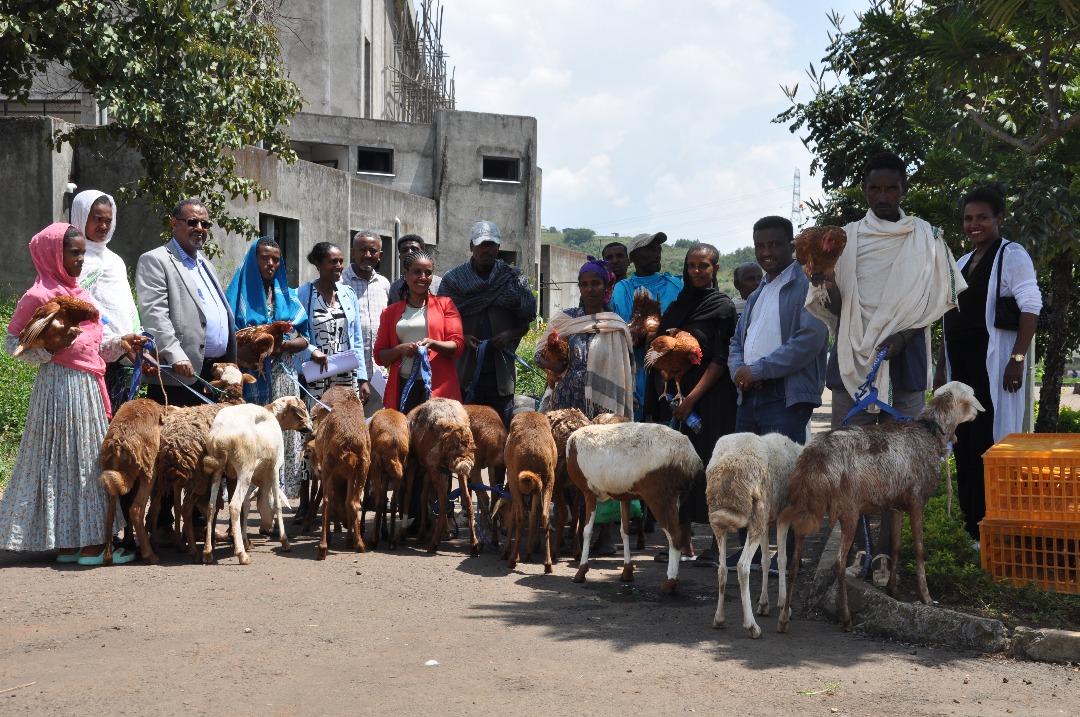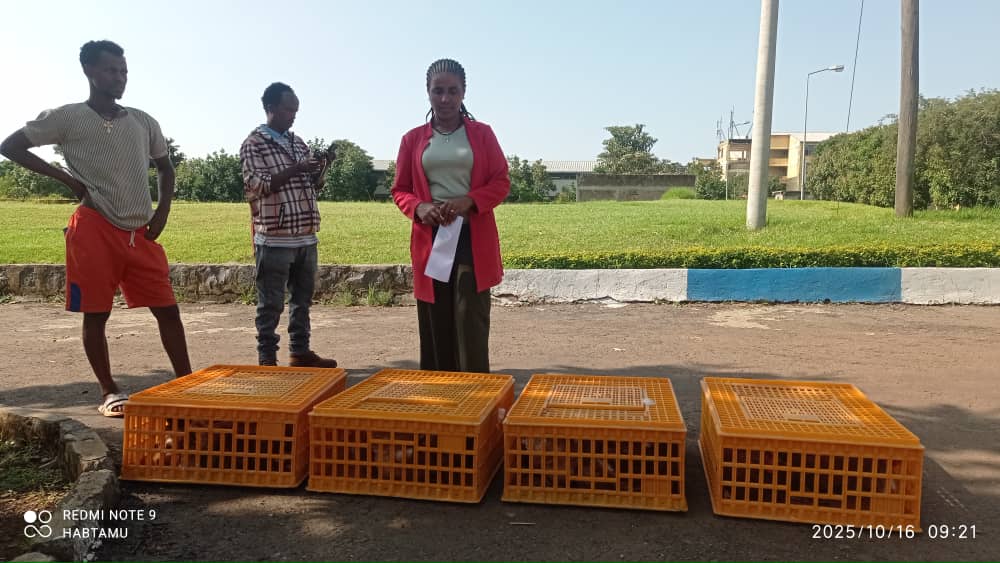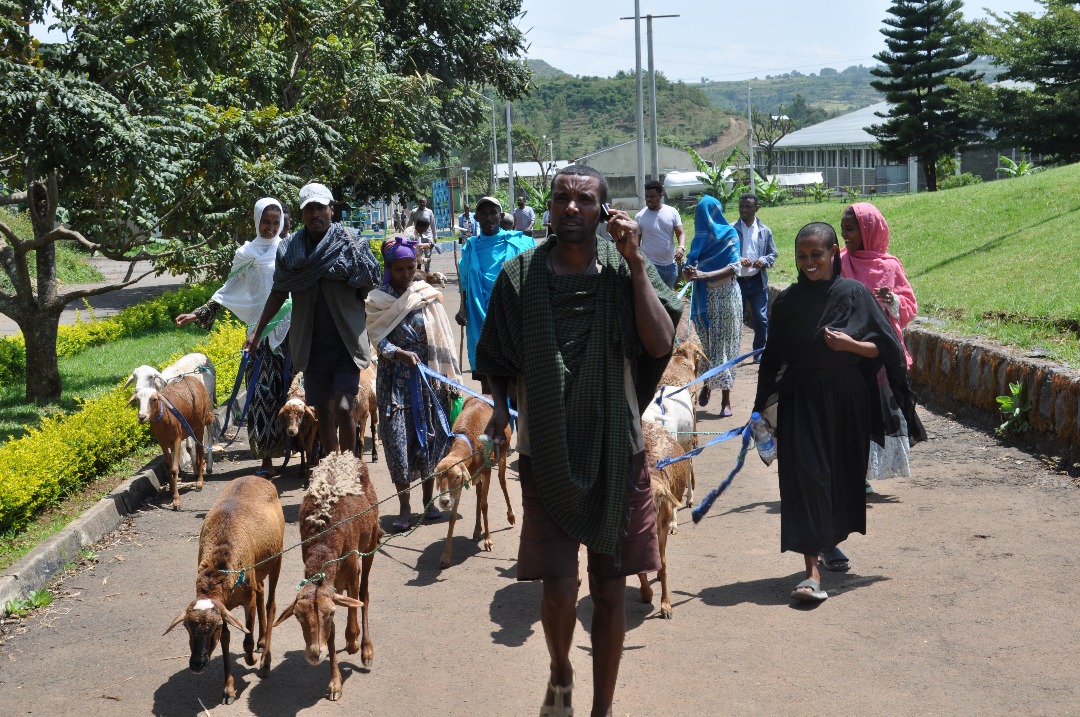
LINK Project Supports FFLGs Members with Sheep and Chicken to Promote Agroecological Farming
BDU APPEAR
14 Oct, 2025
As part of the LINK Project — “Establishing Transformative Learning, Research, and Community Outreach and Capacities in Agroecology” — funded by APPEAR (Austrian Partnership Programme in Higher Education and Research for Development), Bahir Dar University (BDU) in collaboration with the University College for Agrarian and Environmental Pedagogy (HAUP), Austria, has successfully purchased and distributed sheep and chicken to 10 members of the Farmers’ Family Learning Groups (FFLGs) in Mogedel Watershed.
The distribution, held on 16 October 2025 at BDU’s Zenzelima Campus, aimed to enable farmers to practically apply the skills gained from previous trainings on horticultural crop production, poultry farming, and animal husbandry. Each FFLG member received two sheep and three chickens to strengthen agroecological farming practices that enhance food security, nutrition, and sustainable livelihoods.
The event was attended by Dr. Alemu Abate, Vice Dean for Research and Community Engagement of the College of Agriculture and Environmental Sciences (CAES), and Dr. Tesfaye Shiferaw, LINK Project Vice Coordinator, along with project members, local farmers, and invited guests.
In his remarks, Dr. Alemu Abate appreciated the LINK Project’s efforts in promoting agroecological farming in BDU’s model rural village and encouraged farmers to use this opportunity responsibly and share their experiences with others. Dr. Tesfaye Shiferaw emphasized the project’s continued support in monitoring progress and providing technical and material assistance to ensure the success of the initiative.
During the ceremony, a Memorandum of Understanding (MoU) and Contract Agreement were signed between the LINK Project and each FFLG member, outlining the proper utilization and management of the distributed animals.
The purchase and distribution process, coordinated by a committee of university representatives, experts, and FFLG members, was successfully completed after careful market assessment and selection of quality livestock. The activity marks another milestone in the LINK Project’s commitment to building community capacity and fostering sustainable, agroecological farming systems in Ethiopia.


